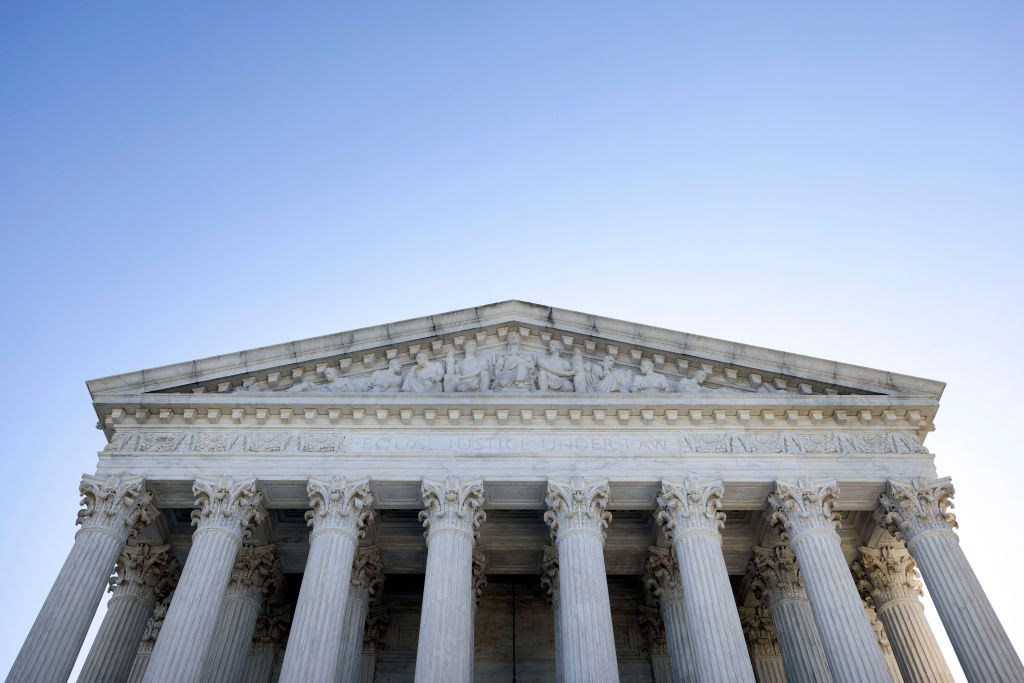As the United States Supreme Court heard arguments on Texas’ six-week abortion ban on Monday, the court continuously referenced Ex Parte Young: a 1908 case where the court initially held that after attempting to enforce an unconstitutional law, state officials are not protected solely under the law if an individual files suit against them. According to reports, this is because they are not acting on behalf of the state in this situation.
The plaintiffs, the Justice Department and Texas abortion providers, argued that Texas officials could be sued under the Ex Parte Young precedent. So what exactly is it?
In 1908, the case was Minnesota Attorney General Edward Young v. Northern Pacific Railway Co. and other shareholders. Shareholders filed a suit against the state after the legislature passed a law regulating rates on what they could charge.
After the federal circuit court granted a preliminary injunction, Young filed a case in Minnesota state to persuade shareholders to follow the law. Then, Young used the Eleventh Amendment as his defense. So Justices were forced to deliberate on sovereign immunity, which protects states and state officials from being sued by private citizens and the Fourteenth Amendment which guarantees all citizens equal protection under the law.
“The attempt of a State officer to enforce an unconstitutional statute is a proceeding without authority of, and does not affect, the State in its sovereign or governmental capacity,” Chief Justice Rufus Wheeler Peckman wrote. “And is an illegal act, and the officer is stripped of his official character and is subjected in his person to the consequences of his individual conduct. The State has no power to impart to its officers immunity from responsibility to the supreme authority of the United States.”
So, in other words, state officials can be sued if they are in fact attempting to enforce unconstitutional laws. For Texas six-week ban, Senate Bill 8 is written to deputize individual citizens to bring lawsuits against anyone who aids and abets someone who gets an abortion. And if successful rewards the plaintiff $10,000.
Now, although the court ruled in favor of the 1908 plaintiffs, the majority also said this precedent could not be used to “restrain the state court from acting in any case brought before it either of a civil or criminal nature.”
In response to the Texas’ argument, Justice Elena Kagan brought up precedent in Young.
“The entire point of this law, its purpose and its effect, is to find the chink in the armor of Ex parte Young,” Kagan said. “And the fact that after all these many years, some geniuses came up with a way to evade the commands of that decision, as well as the command that the even broader principle that states are not to nullify federal constitutional rights, and to say, ‘oh, we’ve never seen this before, so we can’t do anything about it’ — I guess I just don’t understand the argument.”
Justice Brett Kavanaugh also highlighted a unique loophole in the law.
“There’s a loophole that’s been exploited here or used here, which is the private suits are enforced by state court clerks or judges. So the question becomes, should we extend the principle of Ex Parte Young to, in essence, close that loophole?,” Kavanaugh said. “In other words, put aside the language in Ex Parte Young for a second, and that is strong for you, I agree, but the principle of Ex Parte Young and the whole sweep of Ex Parte Young would suggest extending the principle here, arguably.”
While Justice Clarence Thomas empathized with the defendants’ argument on the precedent.
“Ex Parte Young makes clear that federal courts cannot enjoin state judges, ” Thomas said. “The attorney for the abortion provider countered by arguing that Ex Parte Young ‘distinguishes between retraining the commencement of a suit versus a suit after it has already been filed.’ So I think that the language actually supports relief against the clerks here.”
While the country waits on SCOTUS decision, another case is set for a Dec. 1 hearing where the Justices will decide on the constitutionality of access to an abortion. This case specifically relates to a 2018 Mississippi anti-abortion law which challenges Roe v. Wade.
Photo: Kevin Dietsch/Getty Images
Kennedy is a recent graduate of the University of St.Thomas in Houston where she served as Editor-in-Chief of the Celt Independent. Kennedy brings her experience of writing about social justice issues to the Texas Signal where she serves as our Political Reporter. She does everything from covering crime beats, Texas politics, and community activism. Kennedy is a passionate reporter, avid reader, coffee enthusiast, and loves to travel.





